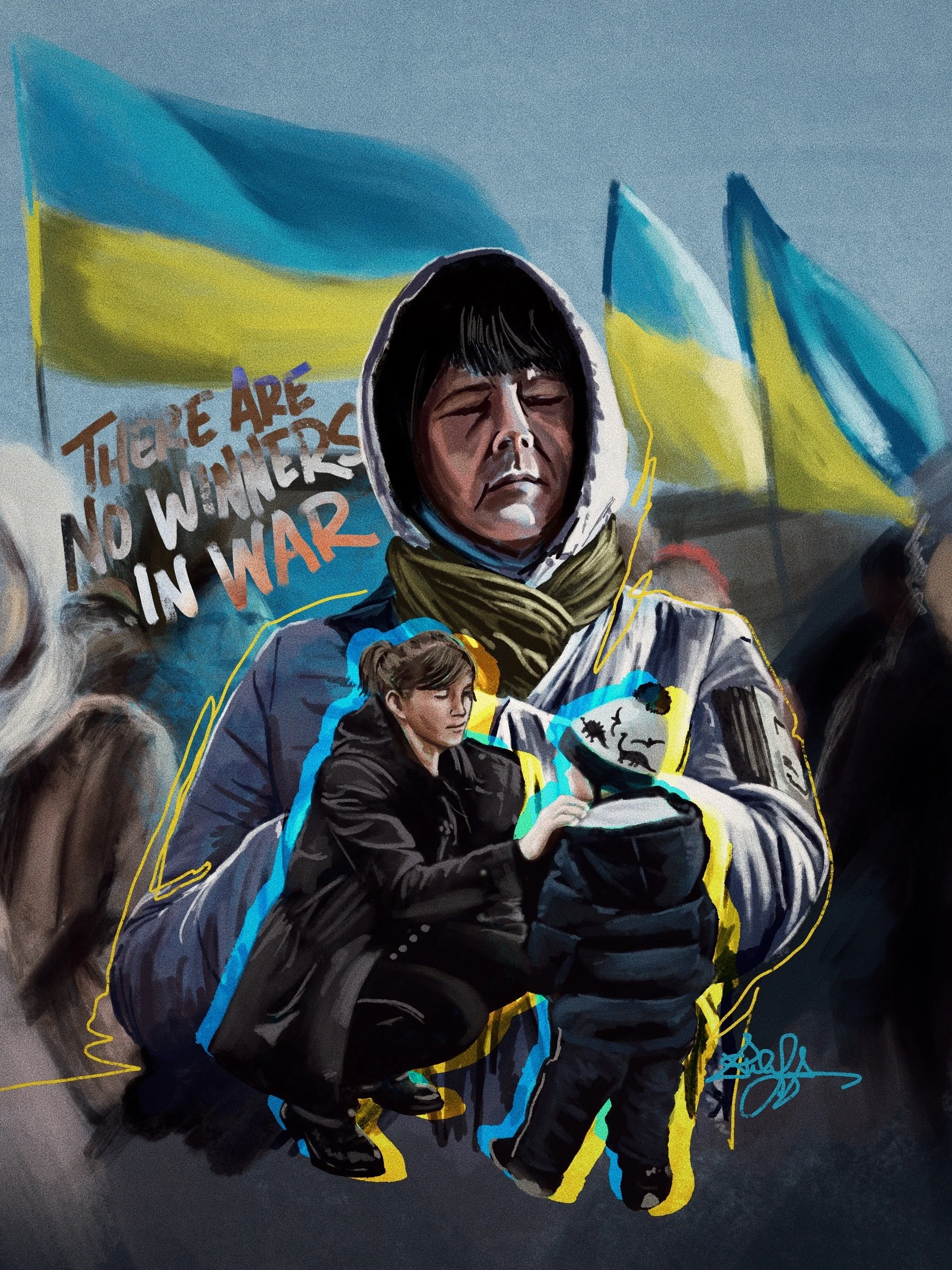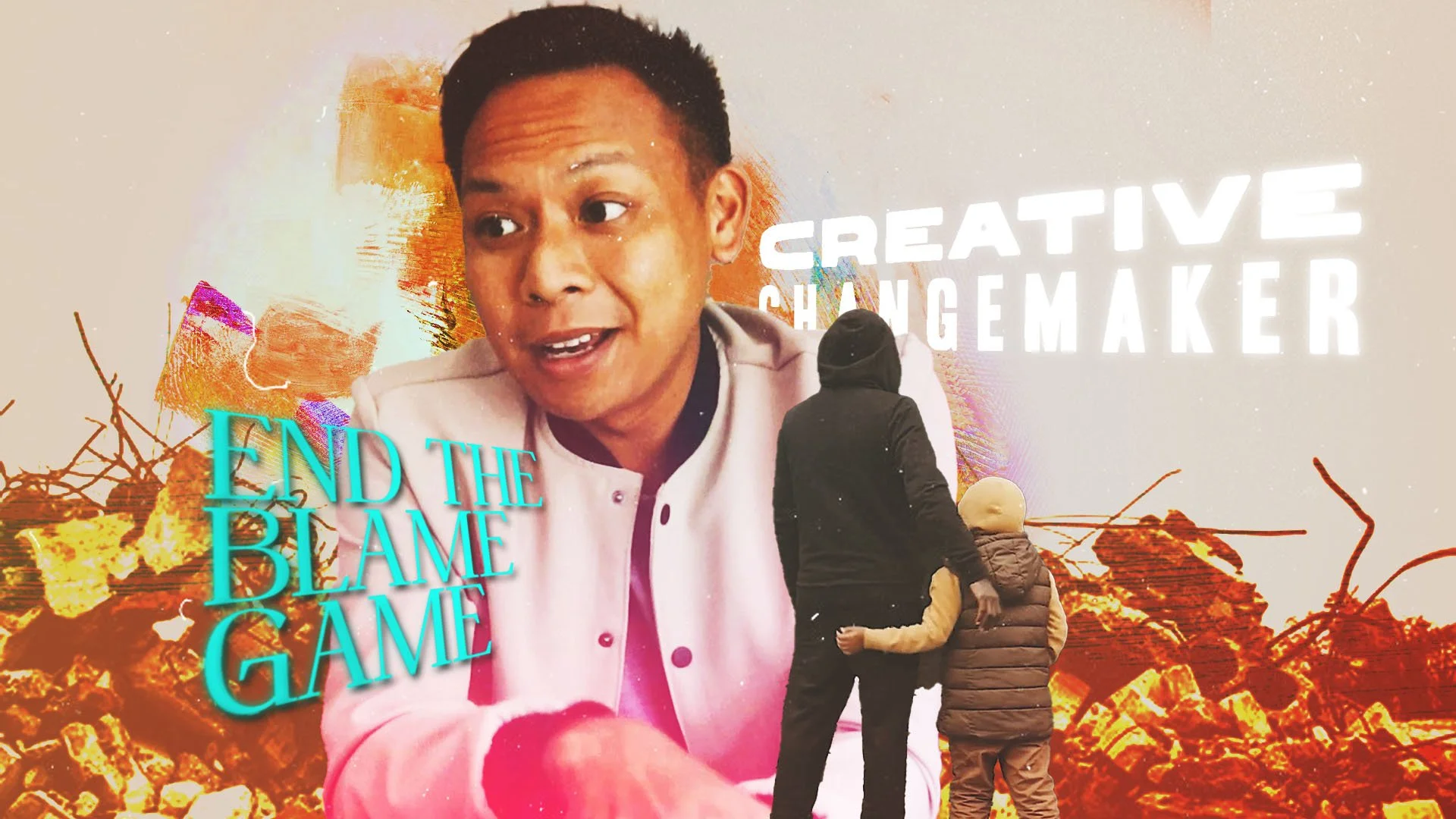It’s been a really intense time in our world for the past few years.
A podcast I was listening to yesterday talked about how global conflict is at an 80 year high. Unless you’re quite old, you’ve never lived through a time where so much of the world was engaged in a war of some sort.
It’s a challenging thing to accept because in many ways my lifetime has coincided with an unprecedented period of peace for humanity, but the past few years are a very unwelcome step backwards.
Palestine and Ukraine are the places that most people have been struck by, but we’ve got like 30 ongoing episodes of mass violence. Places like Armenia, Haiti, DRC, Ethiopia, Sudan are having really heated crises fly under the radar partly because of our own biases in what we pay attention too, but partly because I think we’re burnt out on keeping up with all this.
I’ve noticed a lot of people struggle to talk about these things and to process them. It’s hard for me too, and I essentially got degrees to do just that.
As difficult as it is to talk about these things, I think it’s important to keep trying to have the conversations.
The movie Zone of Interest is all about a father trying to build his family a dream home right next to a concentration camp at Auschwitz. I think trying to ignore everything going on and live our ordinary lives simply because we struggle to wrap our heads around things is kind of like that.
When we see images of violence and horror inflicted on totally vulnerable people, children… responding to it isn’t so much about having the right words. It’s about reaffirming our shared humanity.
I want to share two big observations I’ve made over the past few years, as I’ve tried not to look away from all that’s been happening,
I also want to share a couple of ways that’s impacted the posture I take when taking in all of these images and having conversations.
It basically comes down to resisting the blame game, and making space for people’s pain.
First of all, it’s very easy for conversations about war to be all about whose actions are justified because of what the other side has done before. One example:
Four years ago, it looked like things were really going to escalate when a U.S. drone attack killed one of the highest ranking Iranian officials.
There was a lot of talk, like, well, since you’ve done this, you’ve given us no choice to retaliate, but the U.S. was kind of like, the reason we did that was to retaliate against this other thing you’ve done, and this is kind of how things work when you have two powerful countries that are hostile but not at war.
If you were to trace all of the moves and counter-moves back throughout history, one of the most important dates you’d run into would be 1979. That was the year that a more fundamentalist regime took control of Iran and dozens of U.S. citizens were held hostage in that country for months. It was a really big deal, and as you see, it still impacts global relationships today.
One thing that strikes me as pretty interesting though is that 93% of Iran is below the age of 65. For the majority of Iranians, 1979 is either something that happened before they were born or while they were children.
From Gaza to Ukraine, if you pay attention to the rhetoric used to justify military actions, it’s usually a leader saying they’re trying to reset things to how they used to be. How they should still be. They appear to nationalism and nostalgia.
I remember one leader from Kenya, in response to the Russia-Ukraine conflict, saying that if the countries in Africa all decided to wage war in ofer to sort out getting each people group their rightful land back, the bloodshed would be unbelievable.
I understand people have a relationship with their land, and I get that this is of significance.
But as the Kenyan representative pointed out, our most urgent task is to find a peaceful way forward.
So what are you supposed to do, just concede to your opponents and let them walk all over you? I will say whole-heartedly that I don’t know. At the political level, how do you move in the direction of de escalation without jeopardizing your country’s safety or existence? I’m really glad it’s not on me to figure that out at a country level.
I do know that at the person-to-person communication evel, I can make sure the conversation is framed around the goal of building peace, rather than assigning blame.
The blame game is how these conflicts get passed from one generation to another, depriving the oncoming generations of more peace.
Conversations about our global conflicts are not abstract. They’re deeply personal. In many situations, people have ancestral ties to the groups of people under attack, and its a form of collective trauma to see that take place.
In other scenarios, people are just grieved to see all the ongoing violence and devastation on a regular basis. We’re not meant to take that in so steadily.
Because these conflicts are felt so deeply, we also need to remember to make room for people’s pain.
When we don’t make room for the pain, that really feeds and furthers the cycle of blame. When people feel as though their experiences, anxieties, or traumas are being seen by the world around them, it creates a stronger need to assert that anger.
More often than not, it turns into two sides trying to justify, rationalize, or downplay the pain felt by each other, rather than simply recognizing hurt where it exists.
I’m convinced that making space for the pain other people are experiencing, and the hurt and uncertainty that are in their worlds is one of the most radical re-humanizing choices we can make in our world today.
It’s easy to feel like much of our world and our conversation is basically a constant shouting match. But everybody has some sort of a rationale to what they do, even if it’s nothing we’d consider rational.
I don’t think everyone is in position to do this every time, but I really think there’s something to those times that I see somebody who I’m opposed to in many ways, but I recognize the hurt or the fear that drives their choices.
It’s been a tough time for our world. Let’s give each other the space to simply lament that before rejoining that never-ending shouting match. And when we do talk and share the experience with others, let’s make sure to remember, it’s not about trying to win the blame game. It’s trying to make it so the atrocities we witness today don’t keep repeating themselves tomorrow.






